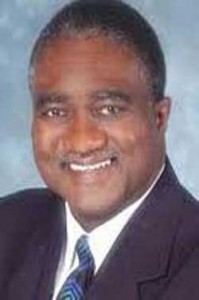
By George Curry
In the wake of the shooting death of 17-year-old Trayvon Martin in Sanford, Fla., stories appeared in newspapers, on broadcast outlets and on the Internet about “the talk,” a candid conversation Black parents have at some point with their Black sons about surviving in a society that devalues them as humans. In an April 5 article published in Taki magazine (takimag.com), National Review contributor John Derbyshire wrote, “Yes, talk about the talk is all over.” Under the headline, “The Talk: NonBlack Version,” he said, “There is a talk that non Black Americans have with their children, too. My own children, now 19 and 16, have had it in bits and pieces as subtopics have arisen. If I were to assemble it into a single talk, it would look something like the following.” He then listed a series of clearly racist and undocumented comments. Among them: The default principle in everyday personal encounters is, that as a fellow citizen, with the same rights and obligations as yourself, any individual Black is entitled to the same courtesies you would extend to a non-Black citizen.
That is basic good manners and good citizenship. In some unusual circumstances, however—e.g., paragraph (10h) below—this default principle should be overridden by considerations of personal safety. In consideration of personal safety, Derby-shire advises: Avoid concentrations of Blacks not all known to you personally; Stay out of heavily Black neighbor-hoods; If planning a trip to a beach or amusement park at some date, find out whether it is likely to be swamped with Blacks on that date (neglect of that one got me the closest I have ever gotten to death by gunshot); Do not attend events likely to draw a lot of Blacks; If you are at some public event at which the number of Blacks suddenly swells, leave as quickly as possible; Do not settle in a district or municipality run by Black politicians; Before voting for a Black politician, scrutinize his/her character much more carefully than you would a White; Do not act the Good Samaritan to Blacks in apparent distress, e.g., on the high-way and if accosted by a strange Black in the street, smile and say something polite but keep moving.
As you go through life, however, you will experience an ever larger number of encounters with Black Americans. Assuming your encounters are random—for example, not restrict-ed only to Black convicted murderers or to Black investment bankers—the Law of Large Numbers will inevitably kick in. You will observe that the means—the averages—of many traits are very different for Black and White Americans, as has been confirmed by methodical inquiries in the human sciences. Of most importance to your personal safety are the very different means for antisocial behavior, which you will see reflected in, for instance, school disciplinary measures, political corruption, and criminal convictions.
These differences are magnified by the hostility many Blacks feel toward Whites. Thus, while Black-on-Black behavior is more antisocial in the average than is White-on-White behavior, average Black-on-White behavior is a degree more antisocial yet.
A small cohort of Blacks—in my experience, around five percent—is ferociously hostile to Whites and will go to great lengths to inconvenience or harm us. A much larger cohort of Blacks—around half—will go along passively if the five percent take leadership in some event. They will do this out of racial solidarity, the natural willingness of most human beings to be led, and a vague feeling that Whites have it coming.
The mean intelligence of Blacks is much lower than for Whites. The least intelligent ten percent of Whites have IQs below 81; forty percent of Blacks have IQs that low. Only one Black in six is more intelligent than the average White; five Whites out of six are more intelligent than the average Black…“Life is an IQ test.” There is a magnifying effect here, too, caused by affirmative action. In a pure meritocracy there would be very low proportions of Blacks in cognitively demanding jobs. Because of affirmative action, the proportions are higher. In government work, they are very high. Thus, in those encounters with strangers that involve cognitive engagement, ceteris paribus the Black stranger will be less intelligent than the White. In such encounters, therefore—for example, at a government office—you will, on average, be dealt with more competently by a White than by a Black.
Derbyshire ended his article by saying, “You don’t have to follow my version of the talk point for point; but if you are White or Asian and have kids, you owe it to them to give them some version of the talk. It will save them a lot of time and trouble spent figuring things out for themselves. It may save their lives.”